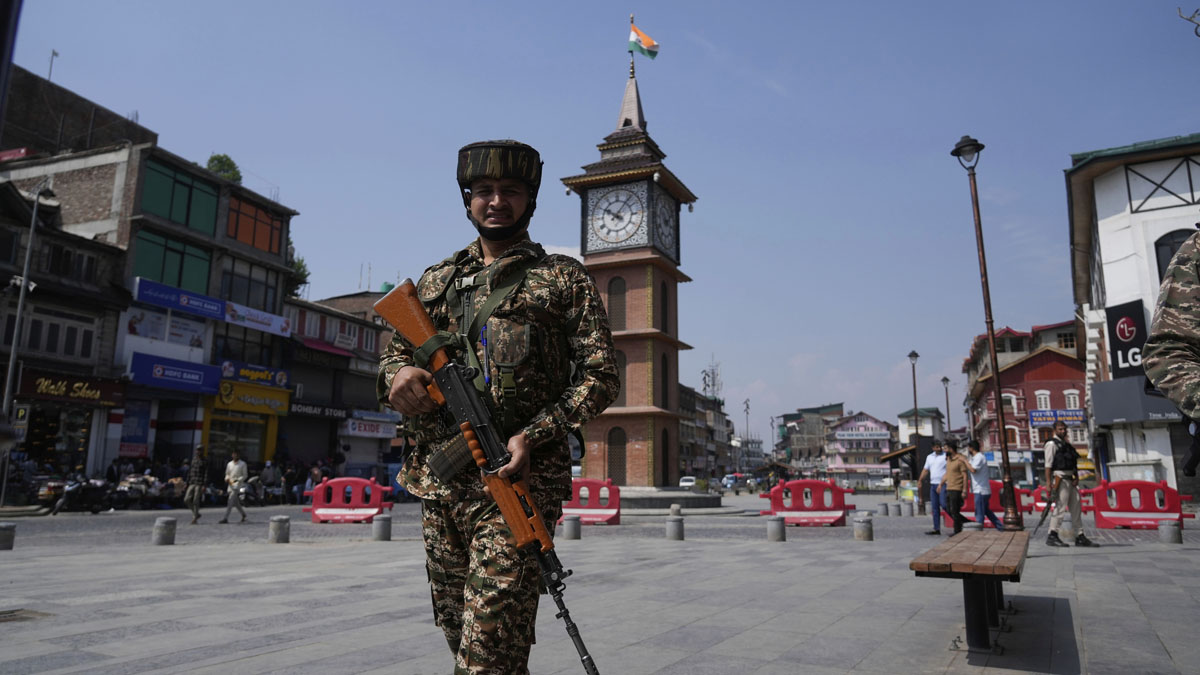Explained: J&K HC’s new legal safeguards for soldiers in civil cases
 An Indian soldier patrols as he guard near a clock tower day after the ceasefire between Indian and Pakistan in Srinagar, in Indian controlled Kashmir, Sunday, May 11, 2025.(AP Photo/Mukhtar Khan)
An Indian soldier patrols as he guard near a clock tower day after the ceasefire between Indian and Pakistan in Srinagar, in Indian controlled Kashmir, Sunday, May 11, 2025.(AP Photo/Mukhtar Khan)
The High Court of Jammu and Kashmir and Ladakh has introduced new safeguards for soldiers involved in civil court cases.
This regulation has been incorporated into the J&K General Rules (Civil), 1978, under a new chapter titled “Suits by or against Soldiers.”
Many soldiers are often stationed in remote or difficult areas, making it challenging for them to attend court when necessary. The new rule aims to protect their legal rights and ensure they are treated fairly.
The rule states that soldiers can participate in civil court cases with special arrangements, cannot be arrested for unpaid loans while on active duty, and the court cannot seize their pay, uniforms, or weapons. If a soldier is on leave to attend court, they can present a certificate from their officer to expedite their case, and if they are unable to attend, they can designate someone to represent them by granting power of attorney, which won't incur court fees and remains valid in appeal cases.
If the court learns that a soldier is serving in a war zone or under special conditions, it must suspend the case until the soldier can participate appropriately. Any decision made without the soldier's presence can be reversed later.
In inheritance (succession) cases, the court should not consider a soldier part of the case unless they are officially included. Notices should only be sent if necessary.
This new chapter will benefit members of the Army, Air Force, Territorial Army, and other forces, ensuring they are not treated unfairly in court solely due to their commitment to protecting the country.
Such changes are particularly advantageous for soldiers deployed in militancy-affected areas like Jammu and Kashmir. The Army is already protected by the Armed Forces Special Powers Act in Jammu and Kashmir, which prohibits the arrest or conviction of a soldier without the Centre's consent.
India